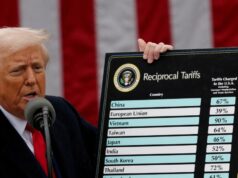Resolve Tibet Law
“We welcome U.S. President Joe Biden signing the bill to enact the ‘Resolve Tibet’ Act into law.” Dorjee Tseten, Member of the Tibetan Parliament in exile tells StratNews Global. As a matter of fact, on July 13, 2024, in a statement, the President of the United States (POTUS) signed into “law S. 138, the “Promoting a Resolution to the Tibet-China Dispute Act” (the “Act”).” Additionally, he stated, “I share the Congress’ bipartisan commitment to advancing the human rights of Tibetans”. As well as “supporting efforts to preserve their distinct linguistic, cultural, and religious heritage”. At the same time the statement said, “My Administration will continue to call on the People’s Republic of China to resume direct dialogue, without preconditions, with the Dalai Lama, or his representatives, to seek a settlement that resolves differences and leads to a negotiated agreement on Tibet.”
Tibet & China’s Expansionism
Dr. Tenzin Dorjee (TenDor), a strategist at the Tibet Action Institute and Dorjee Tseten speak to StratNews Global Associate Editor Amitabh P. Revi in this comprehensive conversation. At any rate, after Biden signed the act into law, Dorjee said, “This explicitly rejects as inaccurate China’s false claims that Tibet has been part of China since ancient times. The strong language of the bill demonstrates the U.S.’ renewed commitment to advocating for the Tibetan people’s right of self-determination”. Furthermore, he added, “This is in accordance with international law. By designating Tibet as an unresolved conflict, this bill, which is now law, has major implications for India”. ” Above all, “not least because it bolsters India’s position against China’s expansionist policies in the Himalayan region,” Dorjee added.
At the same time, TenDor is emphatic in saying, “It is important that recognizing Tibet as an occupied country and Tibetans having a right to self-determination is, by international law, our right as a collective right. It is very important for India, especially with China’s expansionist policy”.
Dorjee reveals that “Dharamsala has been targeted by the Chinese government, from the very beginning. It’s not a new thing. And we try to learn. We try to protect ourselves both digitally and physically.”
Reacting to the ‘Resolve Tibet’ law, Tibetologist Claude Arpi told StratNews Global, “Unfortunately there is a rider. The One-China Policy is reiterated in the same communique: “The Act does not change longstanding bipartisan United States policy to recognize the Tibet Autonomous Region and other Tibetan areas of China as part of the People’s Republic of China.” In these circumstances, it is difficult to see how the new law will concretely help the Dalai Lama and his countrymen in the near future. In view of the present authoritarian regime in Beijing (and the deep antagonism between the U.S. and China), how Washington can help “resolve differences and lead to a negotiated agreement on Tibet”, is not clear.
TenDor and Dorjee also discuss:
- Their personal lives and connections with India.
- The ‘Resolve Tibet’ Law in the U.S.
- The U.S. appeasement under Nixon-Kissinger.
- Current U.S.-China confrontation.
- Chinese attempts to erase Tibet.
- India as a bulwark in support of Tibetans.
- Chinese Communist Party (CCP) attempts at infiltration and influence.
- A need for a coordinated front against the CCP.
- The Dalai Lama and his succession.
- and the need for India’s foreign policy to put China on the backfoot.
The 'Eye' of the story not the 'I' of the story. That's Amitabh Pashupati Revi's credo from the beginning of his professional journey in 1995. From conflicts in the war zones of Afghanistan, Syria, and Iraq to nuances of international politics in the Maldives,Thailand, and South Sudan, Amitabh has reported from all the world's continents, except for Antarctica(so far). Though, he has documented the world's third pole, the Siachen Glacier!
Amitabh reports and produces documentaries on the two-front China-Pakistan threat to India. His ground reports from Arunachal Pradesh and Ladakh have received viewership in the hundreds of thousands. Amitabh has interviewed world leaders, top global analysts, and experts in India, Russia, the United States, and Australia as well. Along the way, he’s picked up the Russian language, the Ramnath Goenka Award for his reporting on the 'Islamic State' terrorist group in Iraq, the Khaled Alkhateb Award for his reporting from Palmyra, Syria, and the UN Dag Hammarskjöld Distinguished Journalist Fellowship. Last but not least, as a founder member of StratNews Global, Amitabh helps lead the reporting, editorial, production, and administration teams at StratNews Global, BharatShakti, and InterStellar on their journey ahead.




